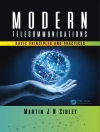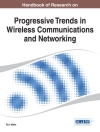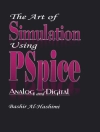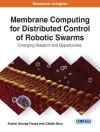This book explores admissible consensus analysis and design problems concerning singular multi-agent systems, addressing various impact factors including time delays, external disturbances, switching topologies, protocol states, topology structures, and performance constraint. It also discusses the state-space decomposition method, a key technique that can decompose the motions of singular multi-agent systems into two parts: the relative motion and the whole motion. The relative motion is independent of the whole motion. Further, it describes the admissible consensus analysis and determination of the design criteria for different impact factors using the Lyapunov method, the linear matrix inequality tool, and the generalized Riccati equation method. This book is a valuable reference resource for graduate students of control theory and engineering and researchers in the field of multi-agent systems.
Tabla de materias
Introduction.- Fundamental Theory.- Admissible Consensus and Consensualization on Interaction topology.- Admissible Consensus and Consensualization with Time Delays.- Admissible 2 L Consensus and Consensualization with External Disturbances.- Admissible Consensus and Consensualization with Protocol State Constraints.- Admissible Consensus and Consensualization with Energy constraints.- Admissible Formation Tracking with Energy constraints.
Sobre el autor
Jianxiang Xi is Professor at Rocket Force University of Engineering, Xi’an, China. He received his B.S. and M.S. degrees from the High-Tech Institute of Xi’an (currently Rocket Force University of Engineering) in 2004 and 2007, respectively. He received his Ph.D. degree in Control Science and Engineering from the same institute in collaboration with Tsinghua University in 2012. His research interests include complex systems control, multi-agent systems and switched systems.
Le Wang is Lecturer at Rocket Force University of Engineering, Xi’an, China. He received the B.S., M.S. and Ph. D. degrees from Rocket Force University of Engineering, Xi’an, China, in 2014, 2016 and 2020, respectively. His research interests include distributed cooperative control, optimal control, fault tolerant control, singular systems, and multi-agent systems.
Xiaogang Yang is Professor at Rocket Force University of Engineering, Xi’an, China. He received the B.S., M.S., and Ph.D. degrees from the High-Tech Institute of Xi’an (currently Rocket Force University of Engineering) in 1999, 2002, and 2006, respectively. His research interests include machine vision, visual navigation, cooperative guidance, and multi-agent systems.
Jiuan Gao was born in 1990, graduated from Northwestern Polytechnical University with Master degree in control science and engineering in 2014. He is Lecturer of Rocket Force University of Engineering. Gao’s primary research fields include multi-aircraft formation control and cooperative guidance. He has authorized the invention of 4 patents and more than 10 papers.
Ruitao Lu was born in 1988, received the Ph.D. degree in control science from the National University of Defense Technology, Changsha, China, in 2016. He is currently a Faculty Member with the Department of Control Engineering, Rocket Force University of Engineering. His current research interests include pattern recognition, image processing, and machine learning. He has authorized the invention of 20 patents, published 2 monographs and more than 40 papers.












